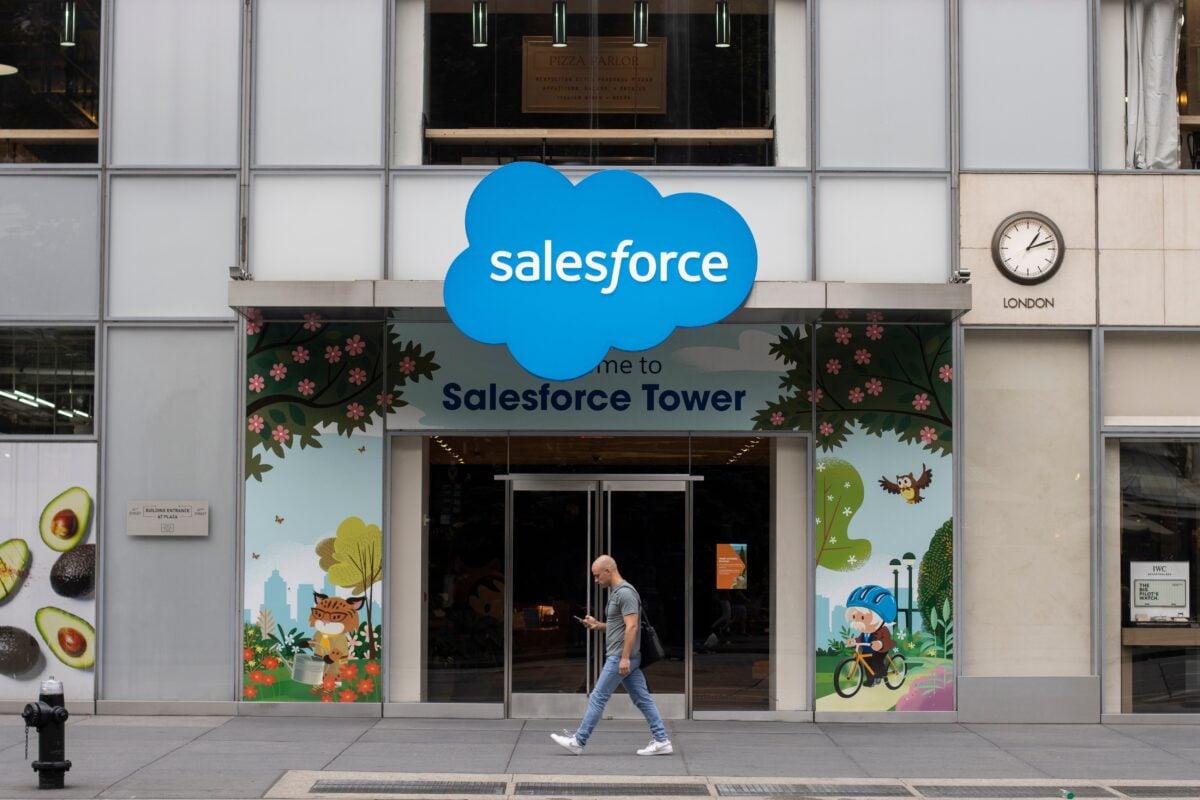TLDRs;
- Salesforce cut 4,000 customer service jobs, reducing its support workforce by nearly half as AI takes over.
- AI now manages half of Salesforce’s customer conversations, supported by human agents for escalated queries.
- Salesforce is also using AI in sales to tackle a 100M-lead backlog spanning 26 years.
- CEO Marc Benioff reversed his July pledge that AI wouldn’t cause job losses, highlighting fast-changing industry realities.
Salesforce, the U.S. cloud software giant, has confirmed it will lay off 4,000 customer service employees as artificial intelligence (AI) takes on a central role in its support operations.
The move represents a sharp 45% reduction in the company’s support division, shrinking the team from 9,000 to 5,000.
Chief Executive Officer Marc Benioff announced the cuts during an appearance on the “Logan Bartlett” podcast, noting that Salesforce’s AI agents now handle around half of all customer interactions. Human agents continue to manage the remaining share, with a hybrid system in place that allows automated responses to be escalated to people when necessary.
A sharp pivot on AI job impact
The layoffs mark a striking reversal for Benioff. Just two months earlier, in July 2025, he dismissed concerns that AI adoption would result in large-scale job losses.
At the time, he insisted that “the humans are not going away” and rejected what he called “scary narratives” surrounding automation.
But the pace of AI integration appears to have accelerated faster than even Salesforce leadership anticipated. With conversational AI systems rapidly proving their ability to match or exceed human performance in many customer service scenarios, the company has opted to restructure its workforce.
AI drives efficiency and scale
Beyond customer support, Salesforce has also rolled out AI to its sales operations in an effort to tackle long-standing inefficiencies.
According to Benioff, the company faced a staggering backlog of more than 100 million uncalled sales leads accumulated over the past 26 years.
AI-powered “agentic sales” tools now process this pipeline by automatically contacting and following up with prospective customers. Benioff emphasized that this type of scale problem could never have been solved by human teams alone, highlighting AI’s role not merely in replacing human labor, but in enabling new operational capabilities that were previously unattainable.
Broader workforce implications
The layoffs, while significant within the support division, are a fraction of Salesforce’s overall global headcount. As of January 2025, the company employed more than 76,000 people across multiple business units.
Still, the restructuring has intensified debate over the impact of AI on employment and whether tech executives are underestimating the speed of workforce disruption.
Critics argue that the decision undermines earlier assurances about AI’s role as a complement rather than a replacement for human workers. Supporters, however, point to Salesforce’s ability to adapt quickly and position itself competitively in an AI-first business environment.
The broader business community is taking note. Surveys suggest that more than 70% of executives now believe AI outperforms humans in certain customer-facing roles, underscoring the likelihood of similar restructuring across other enterprises in the coming years.
A defining moment for tech adoption
Salesforce’s move reflects a wider inflection point in the corporate adoption of AI. For years, the debate centered on whether machines could meaningfully replace human agents. Now, the conversation is shifting toward how companies can harness AI to redefine scale, efficiency, and profitability, often with difficult consequences for employees caught in the transition.
Benioff framed the layoffs as part of a necessary transformation to keep Salesforce ahead of competitors. Yet for thousands of workers, the promise of AI as a human complement has given way to a stark reality: jobs once thought secure are now at risk from increasingly capable machine intelligence.







